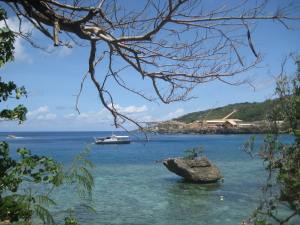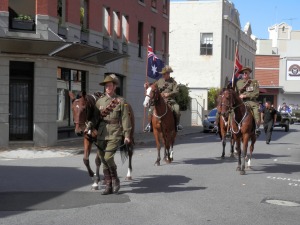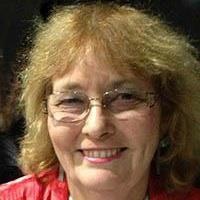Go to the place were the blog has moved
Myths about refugees and asylum seekers
They fought for a”fair go”, for freedom not concentration camps in our name!
It’s worth saying it again as some never seem to listen
Myth: “Asylum seekers who arrive by boat are illegals.”
Both Australian and international law allow asylum seekers to enter Australia without authorisation. Asylum seekers do not break any Australian laws simply by arriving on boats or without authorisation.
“Myth: Asylum seekers are queue jumpers. They should apply through the proper channels, rather than applying onshore.”
Applying as an asylum seeker is the normal way of seeking protection as a refugee. Resettlement is meant to act as a complement to other strategies for protecting refugees, not a substitute for providing protection to refugees who arrive as asylum seekers. Only a tiny minority of the world’s refugees are resettled and the system works more like a lottery than a queue. Most refugees – even people in very vulnerable and dangerous situations – cannot realistically expect to be resettled in the near future, if ever.
Myth: “Asylum seekers who arrive by boat are economic migrants.”
An asylum seeker is, by definition, a person who claims to be a refugee and is waiting for that claim to be assessed. It is impossible to say one way or the other whether their protection claims are credible until they have been assessed. Historically, however, the vast majority of asylum seekers who have reached Australia by boat have been found to be refugees.
Myth: “Refugees and asylum seekers receive higher social security payments than Australian age pensioners.”
A refugee who has permanent residency in Australia receives exactly the same social security benefits as any Australian citizen or eligible permanent resident in the same circumstances. Centrelink payments are calculated at exactly the same rate for both refugees and non-refugees.
There are more myths detailed by the Refugee Council
Magicians and witches
It’s a new world in America! And not in any a sphere that surprises, but restrooms or washrooms, or bathrooms! Not in a toilet as we’d call it in Australia. First all I need to do is stand up, not even use a magic wand! The toilet flushes by itself! (When it does’t flush before I stand! )
Then all I need to do is wave my hand! The soap pumps out a splosh! Except when it doesn’t!
The tap sprays water! ! Except when it doesn’t!
The paper towel rolls out a roll of paper! ! Except when it doesn’t!
The magic! Except when it isn’t!
The trouble is I’m invisible! My hands wave wildly, and the systems do not work! The woman who comes after me makes the magic work flawlessly… But for me … the magic fails, except rarely!
Why is it my presence fails to make the magic work?
The same lack of magic, aura or presence means people walk through me in the street! I do not exist for the crowd on the footpath or sidewalk.
Maybe the ultimate magic is working! I have attained invisibility!
The true illegals don’t come by boat
A lot of disrespect is paid to Australia by the true illegals,white people who don’t stand out, who overstay their visitors’ permits. They are here illegally. They are the uncontrolled stream… But they are rich enough to fly in a plane. They are the ones taking jobs… But we don’t imprison them!
By comparison, the small number of people who escape death and persecution, who risk their lives ( and some do die) are NOT illegal..they are refugees, coming from countries that do not have embassies where they can apply for admission.
Unfortunately they are brown and black and stand out. They dress a little differently, they speak differently, and maybe even worship differently.
Our political “leaders” in their race to the bottom treat these people like criminals, pandering to those who want everything to be exactly as it was in some mythical “white Australia”, that never existed except in the fevered brains of the John Howards of this country.
99 per cent of this generation of boat people are eventually considered as true refugees and allowed to stay, soon becoming Australians …making a home in a country where all those except the indigenous are immigrants or descendants of immigrants.
Of those that are sent back, some have been executed…. Their terror not a mirage but reality,
For the majority of us who are immigrants or descendants of immigrants (boat people from the First Fleet, or 10 pound Poms, or Pre or post war refugees, or Vietnamese or all the other variations)…how can we say enough? How can we turn our backs and say because we and ours are OK, everyone else must stay away.
Yes, some of our ancestors fought in WW1 and WW2…not to keep anyone out but to try to ensure we could all live in peace.
Over the recent history of Australia, since the first gold rush in the 1850s, each new group has arrived, settled in and changed this corner of the world. Since we are here to stay each change is to be enjoyed and gloried in, for by this we are richer not poorer.
Common Myths about Refugees Refugee Council of Australia
Some Great Australians… Who Happened To Be Refugees Kochie Blog
A Poem I wrote 10 years ago… who would believe the situation is worsening, for now we are hiding the shame “off shore”

The beautiful Christmas Island where refugees are held out of sight from mainland Australia Photo taken Rosemary Spark December 2009
No Flowers
All I can see are fences
No flowers in this country.
All I can hear are shouts
No songs in this country.
All I can smell is fear
No flowers in this country.
All I can taste is dust
Wrong bread in this country.
All I can touch are wires
No flowers in this country.
In this country
Why didn’t God make flowers?
Where is the love?
Where are the hugs?
Where are the flowers?
Rosemary Spark August 2002
As for the shameful and blatantly false claim refugees are to blame for our security problems that is the worst kind of politicking!
Our security problems are the largely the result of the dispossessed poor watching the rich get richer while jobs, housing, education and health are increasingly out of reach. Governments continue to reneg on the “social contract” and allow big business to strip Australia bare.
Any foreign terrorist will calmly come by plane business class, not risk his life in a leaky boat on the off chance of finding the kindness of strangers on the Australian coast.
Shalom
Elm Tree Dance Continues…
After the choir at St Pauls’ Beaconsfield sings the postlude at our Sunday service, those who wish to join in “The Elm Dance”. They gather in the circle dance area outside the church before going up to coffee in the hall. This practice has continued at St Pauls for near twenty years
Around the planet, as people gather to work together for the healing of our world, a simple, beautiful practice is spreading. To celebrate their commitment to life and solidarity with activists the world over, they join hands in a circle dance.
Set to the haunting strains of a Latvian song by Ieva Akuratere, and choreographed by Anastasia Geng, the Elm Dance took form in Germany in the 1980s. In 1992, having learned it from my friend Hannelore, I took the Elm Dance with me to workshops I was leading with a Russian-speaking team in areas poisoned by the Chernobyl disaster. There, and especially in Novozybkov, the most contaminated of inhabited cities, the dance became an expression of their will to live. It was here the dance evolved a distinctive form with the raising and swaying of arms, evoking their connection with the trees they so loved.
A Dance of Inspiration and Solidarity Joanna Macy
We at St Pauls join in a circle dance, to pray the prayers of our hearts but especially for peace.
I thought what a great metaphor for our Christian community the Elm Dance  is.
is.
Firstly the dance, the slow measured step where we dance together to the same tune, guided by those who know it better, helped by those who know the steps and the sequence, and supporting each other when feet stumble out of step, or wander in a different direction.
Around us is God’s beautiful sky and warming light, the fragrance of rosemary, the delighted joyful music of the birds mingling with loving music composed by His children.
Wonderful too is the ever-widening circle as more and more join, effortlessly welcomed into the dance. Existing members are strong enough in loving support to let go and welcome in; new ones are brave enough to step forward and take the offered hands.
For those on the outside looking in, there is delight in watching the pattern and wholeness of the dance.
Our prayers seek to bless those from Novozybkov, that most contaminated of cities after Chernobyl and the spoken and unspoken prayers: the homeless down the street, the patient people of Zimbabwe and those with broken relationships around us; and the dance helps us bring the answers into being.
As we are swaying – Let’s Give Peace a Dance
Rosemary
Download Elm Tree Dance Music mp3
The Elm Dance Latvian words translated into English: Elm Dance Introduction Joanna Macy
THE ELM DANCE
Ko man dosi mamulite, par muzigu dzivošanu
What will you give to me mother dear, for eternal life
Ko man dosi mamulite, par muzigu dzivošanu
What will you give to me mother dear, for eternal life
Izplaukst zelta abelite un ka rita migla skan
The little golden apple tree blooms, and rings out like morning mist
Izplaukst zelta abelite un ka rita migla skan
The little golden apple tree blooms, and rings out like morning mist
Ko tas dos tev mamulite, ka tavs delinš nenomirst
What does it give to you mother dear, that your little son doesn’t die
Ko tas dos tev mamulite, ka tavs delinš nenomirst
What does it give to you mother dear, that your little son doesn’t die
Atbildes nav
There is no replyTikai veja notric ozolišu birzs
Only the grove of oak trees trembles in the wind
Veja notric ozolišu birze
The grove of oak trees trembles in the wind
Tikai koki savikšas uz rudeni
Only the trees put on their autumn leaves
Koki savikšas uz rudeni
The trees put on their autumn leaves
Atbildes nav
There is no replyIzškid visi mani joki, Visi joki gludeni
All my humour dissolves, All jokes fall flat
Izškid visi mani joki, Visi joki gludeni
All my humour dissolves, All jokes fall flat
Atbildes nav
There is no replyTikai kajas drošak savu zemi min
Only our feet all the more surely trample our earth
Kajas drošak savu zemi min
Our feet all the more surely trample our earth
Tapec draugi ka man klajas
Therefore, friends, how I am feeling
Itneviens lai neuzzin
let no-one know
Tapec draugi ka man klajas
Therefore, friends, how I am feeling
Itneviens lai neuzzin
let no-one knowNotes on Interpretation
Latvian is a language that was only written down when German missionaries spread the Christian faith in the 1700’s, being the last place in North Western Europe to maintain a pagan animistic worship of the land, the seasons and forces of nature. Hence many words in the song multiple meanings and connotations. This trend towards double meaning was accentuated during the years of Stalinist Soviet rule, where to be too explicit about things could land you in trouble. People became very good at saying one thing and meaning another.
The song uses double lines. This is because in the oral tradition, the singer would sing the first line, and the audience sings the second, as there was no way of writing down songs until comparatively recently. Latvia’s rich oral culture was kept alive in this fashion for centuries if not millennia. There are many examples of double meaning in the song.
* “mamulite” – means “Mother Dear”, but has other meanings also. It here seems to be referring to Mother Nature, or Mother Earth – to Gaia herself.
* “muzigu dzivošanu” – means “eternal life” or “to live forever”. It could be referring to either the Earth as a whole or to Humanity on the Earth, as there is no differentiation between subject and object within the lyrics, making the meaning even more cryptic.
* “zelta abelite” – means “golden little apple tree”. The apple-tree was considered to be the tree of life, in the Garden of Eden. Pagan Latvians also had a belief in the sacred tree of life. Using this image of the tree of life in this context may lead one to think that this is the answer to the question of Mother Earth about eternal life.
* “migla skan” – is a strange image. It means literally “how mist sounds” or rings out like the sound of a bell, ringing out over a valley shrouded in mist. It is as if the essence of the Tree of Life has become hidden in the sound of the morning mist. “Ask not for whom the bell tolls” – the mist has its own sound as the season shifts towards autumn and the mist enshrouds the Earth.
* “delinš” – means “little son”. In this conext the “ltittle son” of “Mother Earth” is humanity itself. The question thus seems to indicate “What does it give to the earth that humanity persists”.
* “Atbildes nav” – means literally, “there is no return image”, but in this context it can be that there is no reply or answer to the question the singer is asking of Mother Earth. The Earth is remaining silent about whether or not humanity will persist. Rather than answering the answer, the trees tremble in the wind (with the way nature becomes aprehensive) and moving towards the autumn can mean approaching an “end” of the year in the season of winter. In the conext of the song, this may be the response that “Mother Earth” is giving to the singer’s questions.
* “Izškid” – means to “dissolve”, in the Latvian dictionary, like “salt in water”
* “joki” – literally means “joke”, but in this sense it means a “sense of humour, of fun and joy”. It is as if the persons joy in life is dissolving as a result of the shift towards autumn and the end of the year.
* “gludeni” – means smooth or flat, like a road or a flat surface. The jokes falling flat means that the “punch line” is not working. It is like a joke that no-one laughs at, a joke for which there is no reply.
* “Kajas drošak savu zemi min” – our feet more surely trample our earth is a result of the persistence of humanity, earth’s young child, becoming ever more numerous.
* “ka man klajas” – means “how does your life go for you”, implying health as well as general wellbeing. In the sense of the song it seems to be asking how the singer feels about this strange enigmatic silence of the earth and the answers she is giving the singer. The implication is that as the answers of the earth are enigmatic, the humanity listening to the song cannot know exactly what the earth moving towards autumn and trees trembling in the wind really means.
* “Itneviens lai neuzzin” – means no one can discover, or the idea of permission – letting no one discover what the Earth and the singer really feels. There is no difference here between subject and object so it is not clear whether the Earth, the little son, or the singer herself is being referred to here.

